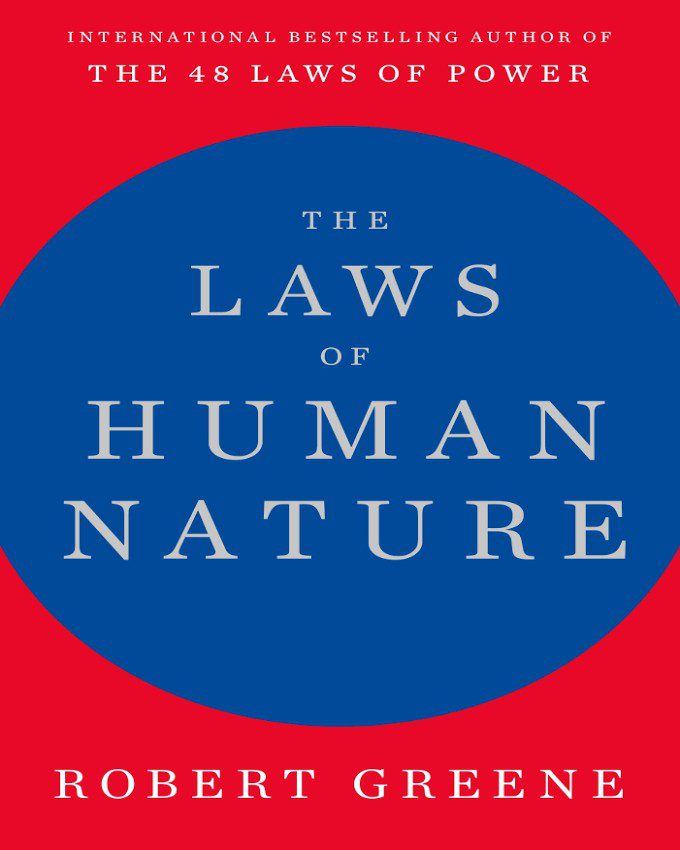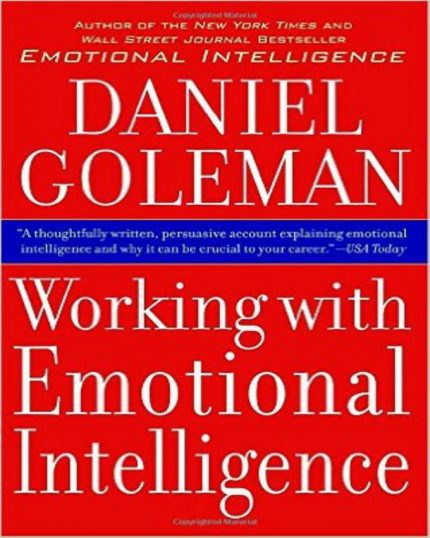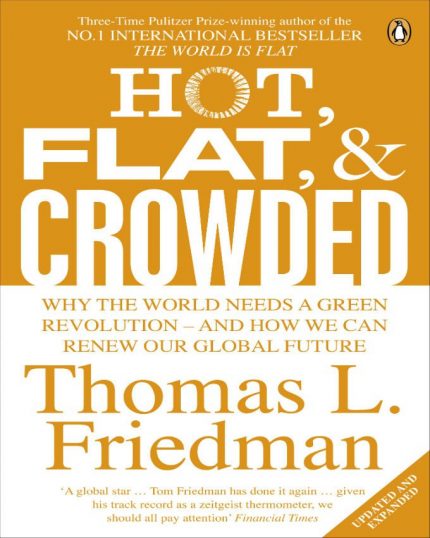From the #1 New York Times-bestselling author of The 48 Laws of Power comes the definitive new book on decoding the behavior of the people around you.
Robert Greene is a master guide for millions of readers, distilling ancient wisdom and philosophy into essential texts for seekers of power, understanding and mastery. Now he turns to the most important subject of all – understanding people’s drives and motivations, even when they are unconscious of them themselves.
We are social animals. Our very lives depend on our relationships with people.
Knowing why people do what they do is the most important tool we can possess, without which our other talents can only take us so far. Drawing from the ideas and examples of Pericles, Queen Elizabeth I, Martin Luther King Jr, and many others, Greene teaches us how to detach ourselves from our own emotions and master self-control, how to develop the empathy that leads to insight, how to look behind people’s masks, and how to resist conformity to develop your singular sense of purpose. Whether at work, in relationships, or in shaping the world around you, The Laws of Human Nature offers brilliant tactics for success, self-improvement, and self-defense.








































bennetgalah (verified owner) –
I judge how much I enjoy a book based on how well it does one or more the following:
1. Gives me new and interesting ways of looking at the world.
2. Gives me new and interesting ways of looking at myself and others.
3. Challenges my values is some way.
This book satisfies all three of my criteria. It satisfies the 2nd more than any book I’ve ever read. Robert really gets under your skin with this one.
This is by no means a perfect book. I found the book a little repetitive/stale at some points. Robert also seems to contradict himself at many points.
Despite all this, I believe this is a phenomenal book. One of the best things I’ve read this year.
Below is a short breakdown of each chapter.
1. The Law of Irrationality. This chapter is essentially about how our irrational tendencies can negatively influence our lives. The first thing we have to all realize is how irrational we are. Only in awareness can we actually start to change. Robert gives some insightful advice about how we can work towards taming our emotional self.
2. The Law of Narcissism. A huge theme of this chapter is empathy. Robert starts by first pointing out that Narcissism should be looked at as a spectrum that we all are on. One end being what he called ‘Deep Narcissists’ (The type of narcissist we all know and love lol) and the other end being the selfless individual. He also goes into quite a bit of detail on how people end up as ‘Deep Narcissists’, which I found really fascinating. He then goes on to give advice on how we can transform self-absorption into empathy.
3. The Law of Role-Playing. This chapter is really about embracing the theatrical nature of reality and seeing through the masks that people present to the world. Robert gives some interesting advice on how we can use people’s non-verbal cues to not only gain an understanding of their self-opinion but also see through the masks they present.
4. The Law of Compulsive Behaviour. This one is about assessing the strength of people’s character. Definitely one of my favourite chapters in the book because of how well Robert articulated a few ideas I’ve been playing around with. It sort of builds off of the knowledge Robert drops on us in the previous chapter. He goes over how poorly equipped we are to gauge the character of the people we deal with because of how mesmerizing the public image they present can be. He goes over how little we know about how our minds work. Nobody likes to believe that they are operating under some kind of compulsion beyond their conscious control (FREE WILL IS AN ILLUSION). Quite a disturbing thought to entertain for some. In our conscious day to day life, we are sleepwalking, unaware of what we really are; we present a front of reasonableness to the world and we mistake this mask for reality. We constantly delude ourselves into thinking the story we tell ourselves of who we are is the reality. As Yuval Noah Harari puts it, “Life is not a story.”.
5. The Law of Covetousness. This chapter is essentially about how you can ‘weaponize’ absence. Robert lays out a framework for how we can exploit what he calls the ‘grass-is-always-greener’ syndrome (Human tendency to romanticize what we don’t have). I honestly think this chapter could have been bundled with one of the other laws. It is extremely insightful, but I don’t think it’s strong enough to stand on its own.
6. The Law of Shortsightedness. This chapter is simply about elevating your perspective. We constantly lose ourselves in trivial pursuits and petty everyday dramas that drain us. We humans are essentially wired for short-term thinking. We are wired to respond to what is immediate and seek instant gratification. Our brains never evolved to examine the big picture. I love how the talks about how the abundance of information these days has lead to an increase in nonconsequential thinking because the speed and ease of access of this information give people the illusion that they are informed and have thought deeply about things. Robert lays out a very interesting way of relating to people and events in the world that he calls a ‘farsighted perspective’.
7. The Law of Defensiveness. This is my favourite chapter in the book. This chapter revolves around assessing people’s self-opinion. People go through life with an opinion of themselves and their abilities. When this opinion is challenged in any way, people get defensive. Robert lays out 3 universal aspects that apply to almost everyone’s self-opinion. He then gives advice on how to influence others by working with their self-opinion. “If you wish to win a man’s heart, allow him to confute you” – Benjamin Disraeli.
8. The Law of Self Sabotage. This chapter is about the power of your attitude and how much influence it has on your circumstances. Robert encourages us to let go of narrow attitudes and have more expansive childlike attitudes. Our attitudes tend to have a self-fulfilling component to them, so making sure you’re attitude isn’t self-sabotaging should be a priority.
9. The Law of Repression. This chapter is basically about the Jungian concept of the shadow. Robert offers a few tips on how to creatively channel our shadow. Not much else to say about it really. If you’re familiar with the shadow concept, this chapter presents nothing new aside from advice on how to integrate your shadow in your everyday life.
10. The Law of Envy. This chapter was another gem. Of all human emotions, none is tricker and more elusive than envy. To conceal envy from ourselves and others, we convert the objects of our envy into unsympathetic characters to justify hostility towards them. Alot of what he covers in this chapter builds off on the knowledge he drops in the previous one. Robert offers some ways we can detect envy in not only others but ourselves as well.
11. The Law of Grandiosity. A very insightful chapter this was. It’s essentially about knowing the limits of your abilities. Robert offers some compelling arguments for why he thinks grandiosity is at an all-time high. He also offers some advice on how we can go through life without sliding into what he calls ‘Fantastical grandiosity’, which is when we imagine we are greater and more superior that is actually the case.
12. The Law of Gender Rigidity. This chapter is about the Jungian concept of ‘Anima’ and ‘Animus’. Just like the chapter on the shadow, this chapter presents nothing new aside from some actionable advice on how we can channel our anima/animus for creative power.
13. The Law of Aimlessness. This chapter talks about how a majority of people go through life with no sense of purpose. This is a special one. Don’t want to say much about it (READ THE DAMN BOOK LOL).
14. The Law of Conformity. This chapter is about how much influence the group has over an individual. Robert talks about a ‘social force’ that affects and binds groups together through shared sensations and creates intense feelings of connection and belonging. He then goes on to talk about the effects groups have on individuals and the dynamics that are present in almost every group.
15. The Law of Fickleness. This chapter could have been bundled with either the ‘Law of Conformity’ or the ‘Law of Grandiosity’. It’s essentially about the ambivalence of human emotions towards our leaders. A big theme throughout this chapter is the concept of authority, how it manifests itself, and how we can become consummate observers of authority.
16. The Law of Aggression. This chapter is essentially about productively channelling the aggression that we all possess. He talks about how our tendency to look down on aggression and strong desires for power can have a detrimental effect on the way we channel our own aggression energy.
17. The Law of Generational Myopia. This chapter talks about generations and how the relationships among all the generations alive at a particular moment in history create the zeitgeist. One of the most insightful things I found in this entire book was how Robert’s interpretation of Ibn Khaldun’s social cycle theory.
18. The Law of Death Denial. This chapter (shortest in the book) is about a lack of meditation on our own mortality has a detrimental effect on our relationship with time and others.